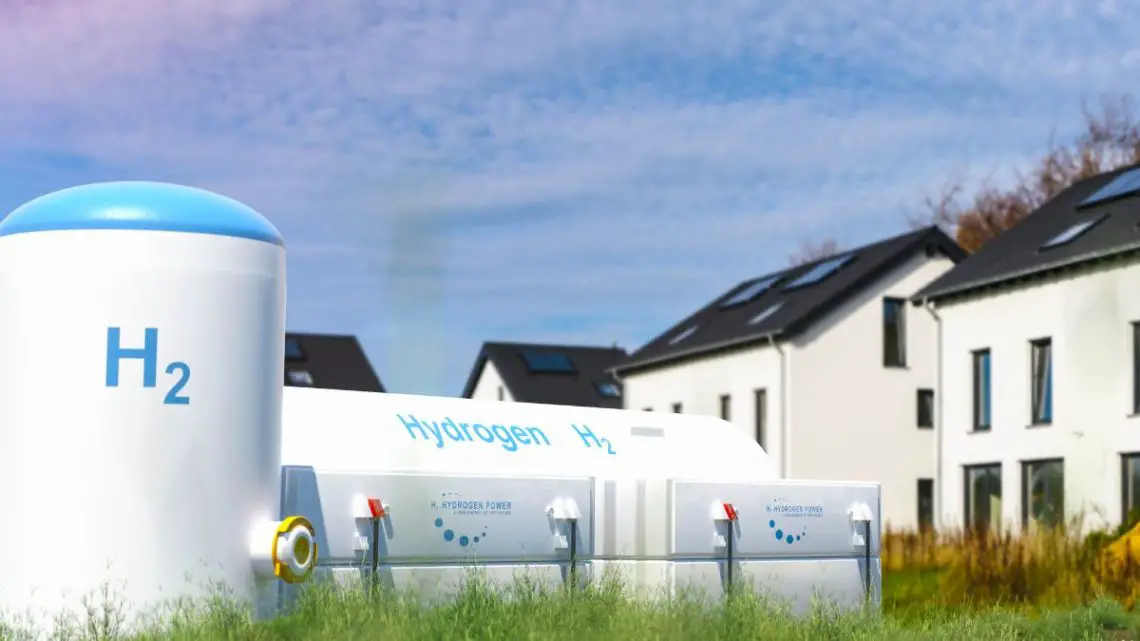
Hydrogen Fuel: Navigating the Ethical Landscape
December 9, 2023Hydrogen fuel is often hailed as a game-changer in the pursuit of clean energy and a sustainable future.
Its potential to reduce greenhouse gas emissions and combat climate change is undeniable.
The United Kingdom, with its significant capabilities and potential for innovation, possesses a promising opportunity to assume a leading role on the global stage in the field of hydrogen technology.
In fact, the UK government is actively advancing its exploration of the possibility of mandating that all new domestic boilers in the UK be ‘hydrogen-ready’ by 2026, aligning with its commitment to achieving net-zero emissions by 2050.
An initiative was put forth to establish the UK’s inaugural ‘hydrogen village’ in Whitby, Ellesmere Port. This proposal, presented jointly by Cheshire West and Chester Council, Cadent, and British Gas, aimed to provide residents with the choice between hydrogen or electric alternatives, along with subsidies covering appliance costs and hydrogen subsidies for a two-year period.
Given that 85% of UK citizens heat their homes with gas, and an additional 6% rely on oil, the adoption of hydrogen boilers seemed like an effective means of curbing CO2 emissions.
Nevertheless, the proposal encountered resistance from local residents who were concerned about being part of a pilot project, ultimately leading to its official cancellation.
Consequently, those seeking to replace their gas or oil boilers with environmentally friendly alternatives may find themselves frustrated by the limited availability of hydrogen-ready boiler options. So eventually you might end up searching for new oil boiler replacement installation costs for your home (or any other fuel but hydrogen).
However, as with any promising technology, the development and use of hydrogen fuel shouldn’t be excluded due to existing stumbling points. Instead, we should address them head-on. Let’s take a look at the key ethical considerations that need to be taken into account while navigating to the hydrogen-based future.
Environmental impact
The foremost ethical concern is the environmental impact of hydrogen production. Currently, the majority of hydrogen is derived from fossil fuels, contributing to greenhouse gas emissions. To address this concern, we must prioritize:
- Renewable energy sources: Harnessing energy from renewable sources like solar, wind, hydro, or geothermal power to produce hydrogen can drastically reduce emissions.
- Carbon Capture and Storage (CCS): Employing CCS technology to capture CO2 emissions from hydrogen production and repurpose it for industrial applications or underground storage.
- Biomass hydrogen: Sustainable conversion of organic matter into hydrogen, ensuring that biomass is grown on land unsuitable for food production.
Sustainability
Ethical considerations extend to how hydrogen fuel is utilized and its role in supporting a sustainable economy and society. Hydrogen contributes to the reduction of fossil fuel dependence which leads to improved air quality and enhanced energy efficiency. Here’s what should be worked on to address this question:
- Transportation power: Using hydrogen fuel for vehicles, including cars, trucks, buses, and trains, to reduce emissions and dependence on fossil fuels.
- Industrial applications: Leveraging hydrogen fuel to produce electricity, heat, and chemicals while minimizing the environmental impact.
- Energy storage: Storing surplus renewable energy as hydrogen to ensure a reliable power source during non-renewable energy production periods.
Hydrogen Safety
Safety concerns surround hydrogen due to its flammable nature. An in-depth research should be done to equip potential hydrogen gas users with proper knowledge and understanding of the technology and safety protocols. A safer transition to hydrogen involves:
- Stringent safety standards: Developing and implementing rigorous safety standards for hydrogen production, storage, and transportation based on the latest scientific knowledge.
- Public education: Ensuring the public is informed about the risks associated with hydrogen fuel and educated on safe handling practices.
- Research and development: Investing in research to innovate safer and more efficient hydrogen fuel technologies, such as storage methods and fuel cells.

Social and economic impact
The transition to a hydrogen economy may disrupt traditional industries, which prompts ethical questions about job loss, and equitable participation. To address these issues, we should consider:
- Workforce transition programs: Investing in training and education programs to assist workers in the fossil fuel industry in transitioning to roles within the hydrogen sector.
- Financial assistance: Providing financial support to low-income households and businesses, ensuring that the benefits of a hydrogen-based economy are accessible to everyone.
- Equitable policies: Developing policies that promote sustainable and equitable hydrogen fuel development, focusing on renewable energy-based hydrogen production, carbon capture and storage, and fair distribution across transportation and industry.
Hydrogen Fuel Cost
One of the most critical ethical considerations surrounding hydrogen fuel is its cost. Currently, hydrogen fuel is more expensive than traditional fossil fuels. This is due to several factors, including the high cost of renewable energy sources and the lack of infrastructure for hydrogen production and distribution.
Here’s what can be done to address this issue:
- Scale up the production of hydrogen from renewable sources. Investing in renewable energy projects such as solar and wind farms, and then using the electricity generated from these projects to produce hydrogen through electrolysis.
- Invest in infrastructure for hydrogen production and distribution. Building new hydrogen production facilities, as well as developing and expanding hydrogen pipelines and storage facilities, for example for refueling stations for hydrogen fuel cell vehicles or storing hydrogen during periods of high demand or when renewable energy production is low.
- Provide subsidies or tax breaks. Providing subsidies directly to hydrogen producers and distributors, or they can be offered to consumers who purchase hydrogen fuel or hydrogen-powered vehicles. Tax breaks can also be used to reduce the cost of investing in hydrogen production and distribution infrastructure.
Conclusion
The journey towards a hydrogen-based future is laden with promise and potential, but we must navigate it ethically and responsibly.
The ethical considerations surrounding hydrogen fuel, including its environmental impact, sustainability, safety, cost and social and economic consequences, require ongoing public discourse and collaboration to ensure that its benefits reach all segments of society.
By addressing these ethical considerations, we can develop and use hydrogen fuel in a way that is beneficial to the environment, society, and the economy.



 With over 15 years of reporting hydrogen news, we are your premier source for the latest updates and insights in hydrogen and renewable energy.
With over 15 years of reporting hydrogen news, we are your premier source for the latest updates and insights in hydrogen and renewable energy.